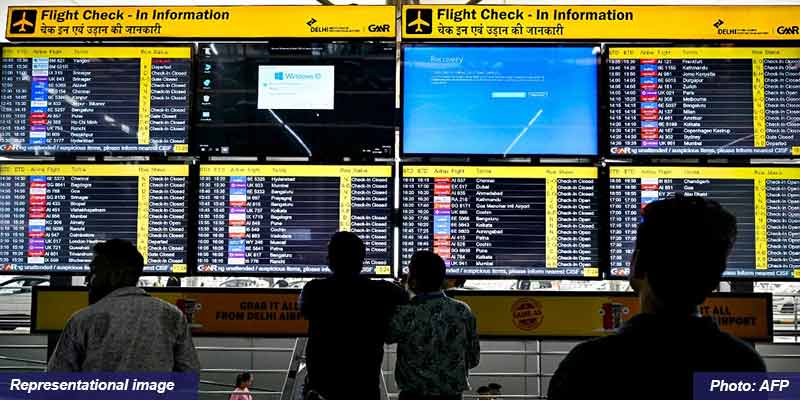- India
- Nov 07
DGCA compiles data on GPS spoofing instances
• The Directorate General of Civil Aviation (DGCA) is collecting data on GPS interference and spoofing to have a better understanding of the situation amid the Delhi airport reporting such instances in the past few days.
• Generally, Global Positioning System (GPS) / Global Navigation Satellite System (GNSS) spoofing and jamming refers to attempts to manipulate a user’s navigation system by giving false signals.
• Spoofing is a key concern as false signals could also result in a situation where aircraft comes closer to each other beyond the permitted separation.
• The busiest airport in India, Indira Gandhi International Airport (IGIA) in the national capital handles over 73.7 million passengers every year.
• Both the International Civil Aviation Organisation (ICAO) and the International Air Transport Association (IATA) have been looking at the issue of GPS spoofing and jamming, and looking at ways to deal with them.
Directorate General of Civil Aviation (DGCA)
• The Directorate General of Civil Aviation (DGCA) is the regulatory body in the field of civil aviation primarily dealing with safety issues.
• It has been accorded with statutory status by Aircraft Amendment Act, 2020.
• It is responsible for regulation of air transport services to/from/within India and for enforcement of civil air regulations, air safety and airworthiness standards.
• It coordinates all regulatory functions with the International Civil Aviation Organisation.
• The headquarters are located in New Delhi with regional offices in various parts of India.
• To keep the statutory provisions abreast with the international standards and the latest developments in the sphere of civil aviation, Aircraft (Amendment) Act, 2020 has been enacted and provisions relating to imposition of financial penalties and compounding of offences have been inserted in the Aircraft Rules, 1937.
• New rules namely the Drone Rules, 2021 have been promulgated to regulate the drone sector.
Functions of DGCA:
• Regulation of air transport services to/from/within India in accordance with the provisions of the Aircraft Rules, 1937, including bilateral and multilateral agreements with foreign countries and the policy pronouncements of the government.
• Registration of civil aircraft.
• Laying down airworthiness requirements for civil aircraft registered in India and grant of Certificate of Airworthiness to such aircraft.
• Licensing of pilots, aircraft maintenance engineers and monitoring of flight crew standards.
• Licensing of aerodromes and air carriers.
• Rendering advice to the government on matters pertaining to civil aviation.
• Processing amendments to Aircraft Act, 1934 and the Aircraft Rules 1937, and other Acts and rules thereunder relating to aviation, for their implementation in India, the provisions of the Chicago Convention and Annexes thereto, and other International Conventions relating to aviation.
• Coordination of the work relating to the International Civil Aviation Organisation and replies to State Letters after consulting stakeholders, wherever necessary including consultation with other agencies.
• Investigation of air accidents and incidents and rendering technical assistance to the Courts/ Committees of Inquiry.
• Regulation and supervision of training activities of flying/gliding clubs.
• Type certification of aircraft.

